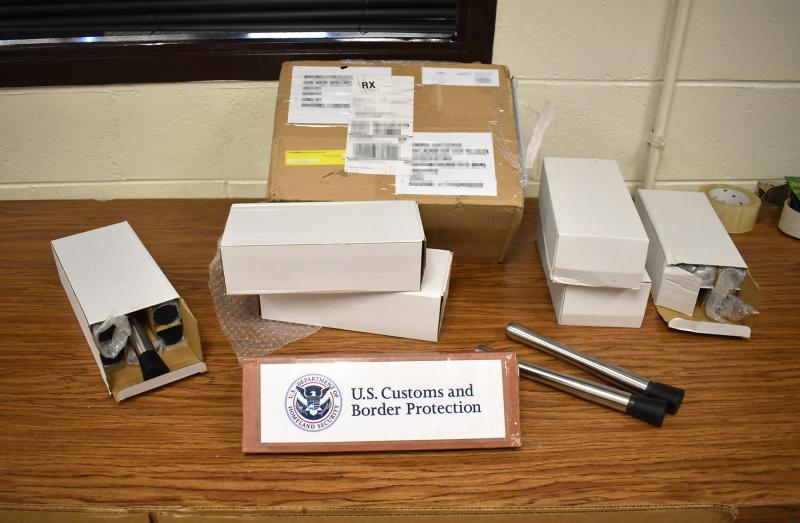PHILADELPHIA – U.S. Customs and Border Protection (CBP) officers in Philadelphia intercepted a shipment on June 10 from Italy of ketamine, a dangerous substance used as a club drug and in sexual assaults.

dangerous club drug ketamine.
CBP officers initially examined the international air parcel and detected an anomaly during an x-ray examination. The box, manifested as “stainless steel bar cocktail sticks,” contained 36 metal tubes that each contained a white substance. Officers tested the substance with a handheld elemental isotope analysis tool and identified the contents as ketamine hydrochloride.
The ketamine and metal tubes weighed a combined 13 pounds, four ounces. CBP officers seized the shipment.
The parcel was destined to an address in Worcester, Mass. An investigation continues.
According to the DEA, ketamine is a Schedule III non-narcotic drug regulated under the Controlled Substances Act. Along with other club drugs, ketamine is popular among teens and young adults at dance clubs and raves. It delivers hallucinogenic effects and is sometimes used to facilitate sexual assault crimes. Ketamine, commonly known on the street as Special K, distorts perceptions, causes amnesia, temporary paralysis, and dangerously slows breathing, potentially shutting down body systems and leading to cardiac arrest or respiratory failure.
“Customs and Border Protection officers are extremely skilled at detecting contraband even through the clever disguise of creative concealment methods,” said Keith Fleming, Acting Director of Field Operations for CBP’s Baltimore Field Office. “CBP’s narcotics interdiction mission is vital to protecting our nation’s citizens and our communities from the dangers of illicit drugs.”

36 cocktail mixing tubes shipped from Italy.
CBP seized or disrupted an average of 3,677 pounds of dangerous drugs every day across the United States during fiscal year 2020. Learn more about what CBP accomplished during “A Typical Day” in 2020.
CBP's border security mission is led at ports of entry by CBP officers from the Office of Field Operations. CBP officers screen international travelers and cargo and search for illicit narcotics, unreported currency, weapons, counterfeit consumer goods, prohibited agriculture, and other illicit products that could potentially harm the American public, U.S. businesses, and our nation’s safety and economic vitality.
Please visit CBP Ports of Entry to learn more about how CBP’s Office of Field Operations secures our nation’s borders. Learn more about CBP at www.CBP.gov.
Follow the Director of CBP’s Baltimore Field Office on Twitter at @DFOBaltimore and on Instagram at @dfobaltimore for breaking news, current events, human-interest stories and photos.

